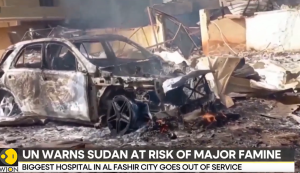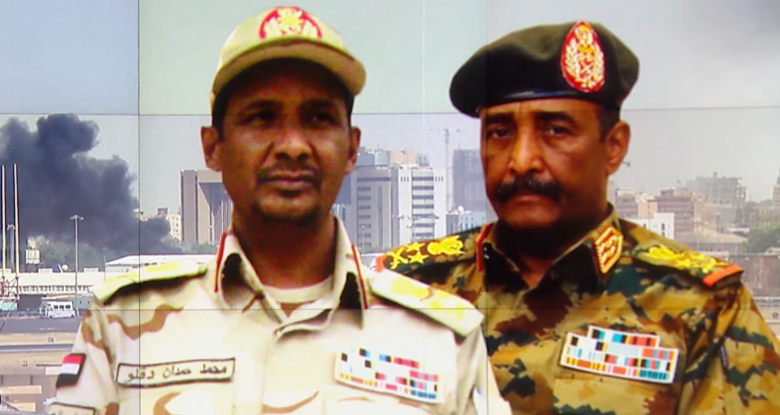By United Nations
Photos: YouTube Screenshots
Further deadly violence in Sudan’s besieged El Fasher city has forced a major hospital to shut over the weekend after soldiers stormed the facility, prompting alarm on Monday from the UN World Health Organization (WHO) about the serious impact on sick and injured patients.

“WHO is appalled by the recent attack on South Hospital, the only facility with surgical capacity in El Fasher, Darfur,” the UN agency said in a post on X. “The hospital’s closure following the attack has stretched the two other hospitals there beyond capacity, further limiting access to lifesaving services.”
According to reports, the hospital had to close after Rapid Support Forces (RSF) soldiers entered the building and opened fire. The NGO which helps to run the hospital, Médecins Sans Frontières (MSF), said on X that the armed fighters stole equipment and an ambulance.
Wad Al-Nura fallout
In a related social media post, the WHO condemned “another attack” on a health facility in Wad Al-Nura in Al-Jazirah state south of Khartoum, that caused the death of a nurse who was on duty and caring for patients at the time.
“WHO strongly condemns attacks on healthcare. Health workers and patients should not have to risk their lives to provide and access health services,” the UN agency said, days after an attack on the village reportedly by RSF paramilitaries involving heavy artillery left more than 100 dead.

Rights chief’s warning
UN human rights chief Volker Türk added his voice on Friday to widespread international condemnation of that attack in which he cited evidence gathered by his Office which “indicates that the RSF used weapons with wide-area effects, including artillery shells, during the attack”.
Previously, the UN High Commissioner for Human Rights spoke out against the “deeply devastating impact” on civilians of the clashes between the Sudan Armed Forces and the RSF in El Fasher in the far west of the vast country.
In addition to personal appeals in separate phone calls to the generals of the rival militaries, Mr. Türk warned that more than 1.8 million residents and internally displaced people were besieged in the city “and at imminent risk of famine”.
Any further escalation “would have a catastrophic impact on civilians and would deepen intercommunal conflict with disastrous humanitarian consequences”, the High Commissioner insisted.

Hunger crisis
The humanitarian emergency caused by heavy fighting which erupted across Sudan last April is now close to becoming the world’s largest hunger crisis.
According to the UN World Food Programme (WFP), 18 million people in Sudan are acutely food insecure including nearly five million who are now in the grip of emergency levels of hunger.
“This is the highest number ever recorded during the harvest season… Around 90 per cent of those in emergency are in areas where access is extremely limited due to heavy fighting and restriction,” WFP said, in an appeal for urgent funding.






